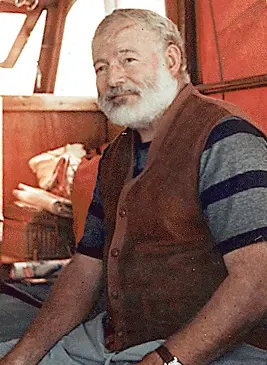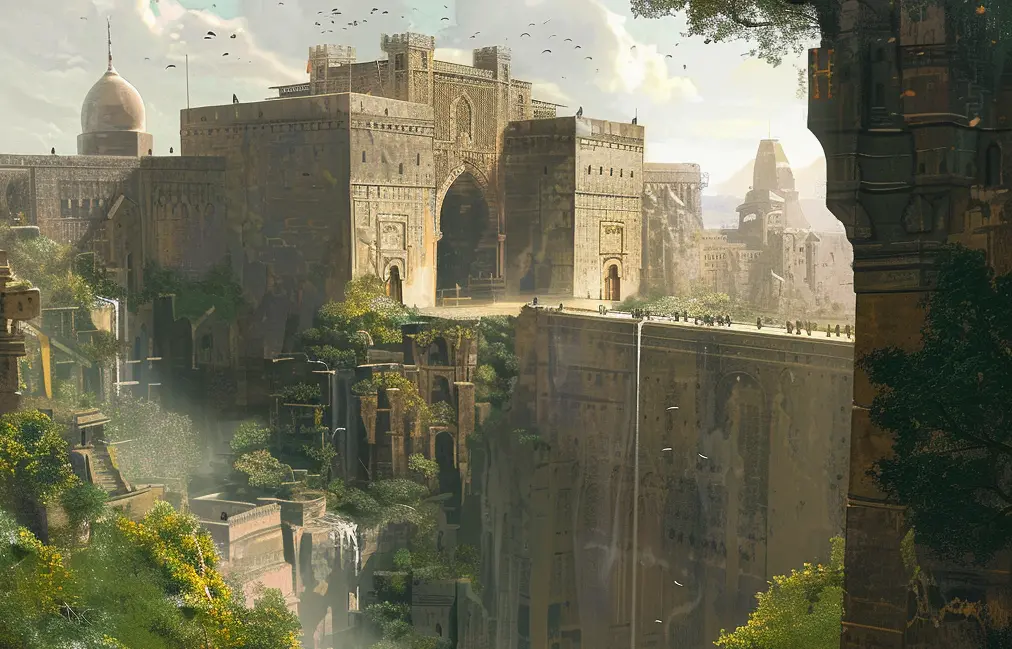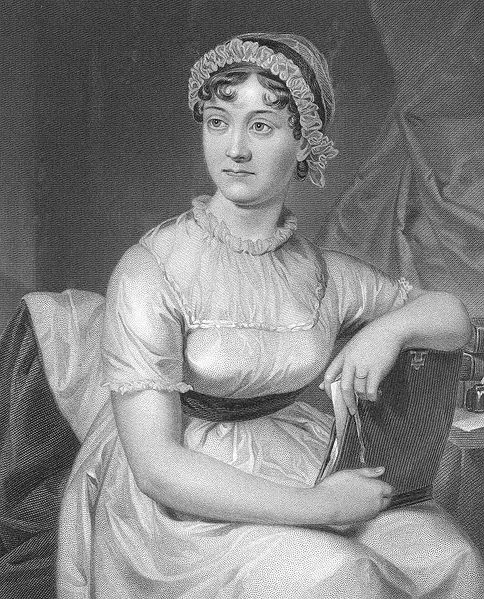Rediscovering Ernest Hemingway: The Master of Concise Prose
Ernest Hemingway is an iconic figure in American literature, known for his distinctive writing style and profound narratives. His works have captivated readers for decades, offering a window into the complexities of the human experience. Whether you’re a long-time admirer or new to his stories, Hemingway’s influence is undeniable.
A Glimpse into Ernest Hemingway’s Life
Ernest Hemingway was born on July 21, 1899, in Oak Park, Illinois. He grew up in a well-to-do family and developed a passion for writing at an early age. After graduating from high school, Hemingway worked as a reporter for The Kansas City Star, where he honed his concise writing style.
During World War I, Hemingway served as an ambulance driver for the Italian Red Cross. His experiences in the war deeply influenced his writing, providing material for many of his stories. After the war, he moved to Paris, where he became part of the “Lost Generation” of expatriate writers.
Hemingway’s first major success came with the publication of “The Sun Also Rises” in 1926. This novel, along with his other works, established him as a leading voice in American literature. Despite his fame, Hemingway’s life was marked by personal struggles, including multiple marriages and battles with depression. He passed away on July 2, 1961, leaving behind a legacy that continues to inspire.
The Novels of Ernest Hemingway
Hemingway’s novels are celebrated for their terse prose, vivid descriptions, and exploration of themes such as war, love, and loss. Each novel offers a unique perspective on the human condition, showcasing Hemingway’s literary prowess.
1. The Sun Also Rises (1926)
“The Sun Also Rises” is a poignant exploration of the disillusionment of the post-World War I generation. The novel follows a group of expatriates as they travel from Paris to Spain, capturing their struggles with love, identity, and purpose. Hemingway’s sparse writing style and keen observations make this novel a cornerstone of modernist literature.
2. A Farewell to Arms (1929)
Set against the backdrop of World War I, “A Farewell to Arms” tells the story of an American ambulance driver, Lieutenant Frederic Henry, and his love affair with a British nurse, Catherine Barkley. The novel is a powerful depiction of the brutality of war and the fragility of human relationships. Hemingway’s realistic portrayal of the war’s impact on individuals remains profoundly moving.
3. For Whom the Bell Tolls (1940)
“For Whom the Bell Tolls” is set during the Spanish Civil War and follows Robert Jordan, an American dynamiter working with a band of guerilla fighters. The novel explores themes of honor, sacrifice, and the interconnectedness of human lives. Hemingway’s detailed descriptions and intense narrative create a gripping and thought-provoking read.
4. The Old Man and the Sea (1952)
One of Hemingway’s most famous works, “The Old Man and the Sea,” tells the story of Santiago, an aging Cuban fisherman, and his epic battle with a giant marlin. The novella is a profound meditation on perseverance, dignity, and the human spirit. Hemingway’s simple yet powerful prose brings Santiago’s struggle to life, making this a timeless classic.
The Enduring Appeal of Hemingway’s Writing
Ernest Hemingway’s writing has endured for many reasons. His distinctive style, characterized by brevity and understatement, revolutionized modern literature. Hemingway’s ability to convey deep emotion and complex themes with simple, direct language has inspired countless writers.
Hemingway’s characters are often marked by their stoicism and resilience. They face adversity with a quiet strength, reflecting Hemingway’s own belief in the importance of grace under pressure. This stoic philosophy, coupled with his exploration of universal themes, ensures that his works remain relevant and impactful.
The settings of Hemingway’s novels are vividly depicted, from the cafes of Paris to the battlefields of Spain. His detailed descriptions transport readers to these locales, immersing them in the world of his characters. Hemingway’s ability to evoke a sense of place adds depth and richness to his narratives.
Hemingway’s Legacy and Influence
Ernest Hemingway’s influence extends far beyond his own writing. He has inspired numerous adaptations, from films to stage productions, bringing his stories to new audiences. His works have also influenced generations of writers, who have drawn on his themes and style to create their own narratives.
Hemingway’s novels have been adapted into many successful films, capturing the essence of his stories. Notable adaptations include the 1958 film “The Old Man and the Sea,” starring Spencer Tracy, and the 1996 film “In Love and War,” based on Hemingway’s experiences in World War I. These adaptations bring Hemingway’s vivid characters and settings to life, showcasing the timeless appeal of his stories.
Modern authors continue to be inspired by Hemingway’s writing style and thematic explorations. Writers such as Raymond Carver and Joan Didion have cited Hemingway as a major influence on their work. His focus on simplicity, precision, and emotional honesty has left a lasting mark on contemporary literature.
Ernest Hemingway in the Modern World
In today’s literary landscape, Ernest Hemingway’s works continue to captivate readers and inspire new generations. His novels are studied in schools and universities, and his influence can be seen in various forms of media and popular culture. Hemingway’s ability to capture the complexities of the human experience ensures that his stories remain relevant and engaging.
Hemingway’s works have also found a place in the digital age. Online communities and fan groups dedicated to his novels provide a space for readers to share their love for his stories and discuss their interpretations. Websites, blogs, and social media platforms offer endless opportunities for Hemingway enthusiasts to connect and explore his works in new and creative ways.
The popularity of events like the Hemingway Days festival in Key West, Florida, and the numerous literary tours and societies dedicated to his life and work, further attest to his lasting appeal. These events celebrate Hemingway’s legacy, bringing together fans from all over the globe to share in their appreciation of his writing.
Hemingway’s novels also continue to inspire academic scholarship. Researchers and scholars delve into his works to uncover new insights into his themes, characters, and narrative techniques. Hemingway’s ability to capture the nuances of human behavior and his exploration of fundamental human concerns ensure that his novels remain a rich source of study and analysis.
Personal Reflections on Ernest Hemingway’s Works
As a long-time admirer of Ernest Hemingway, I find his novels to be a constant source of inspiration and introspection. Each time I revisit his stories, I discover new layers of meaning and fresh insights into his characters and themes. Hemingway’s ability to convey profound truths with such economy of language is nothing short of remarkable.
One of the aspects I appreciate most about Hemingway’s writing is his focus on the human condition. His characters, with their struggles and triumphs, reflect the complexities of life and the resilience of the human spirit. Hemingway’s exploration of themes such as love, loss, and identity resonates deeply, offering readers a chance to reflect on their own experiences.
Hemingway’s writing style, characterized by its simplicity and clarity, is another reason why his works continue to captivate readers. His ability to convey so much with so few words is a testament to his skill as a storyteller. Hemingway’s prose is direct and unadorned, yet it carries a weight of emotion and meaning that lingers long after the last page is turned.
Ernest Hemingway’s enduring legacy as a novelist is a testament to his remarkable talent and insight. His ability to capture the complexities of the human experience with such precision and clarity ensures that his works remain relevant and engaging for readers of all ages. Whether you’re revisiting an old favorite or discovering his novels for the first time, Hemingway’s stories offer a rich and rewarding reading experience.
For those who have yet to explore Hemingway’s world, I encourage you to dive into his novels and experience the power, depth, and beauty of his writing. And for long-time fans, there’s always something new to discover and appreciate in his timeless works. Ernest Hemingway’s novels continue to enchant and inspire, proving that great literature truly transcends time and place.
Subscribe to our newsletter and get two free novels!



